Publications
Articles, publications, books, tools and multimedia features from the U.S. Institute of Peace provide the latest news, analysis, research findings, practitioner guides and reports, all related to the conflict zones and issues that are at the center of the Institute’s work to prevent and reduce violent conflict.
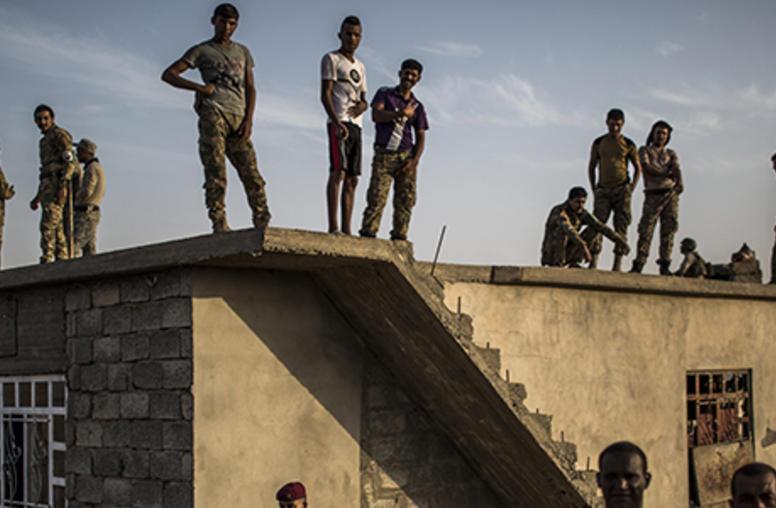
Mosul After ISIS: No Clear Plan for Peace
Two weeks into Iraq’s offensive to recapture Mosul from ISIS militants, the government and its fractious allies have not agreed on how to stabilize and govern the disputed region in the aftermath. The threat of new rounds of conflict, even after a recovery of Mosul from ISIS, is highlighted by the weekend’s surprise advance by Shia Muslim militias, which make up one of at least four main rival forces in the assault. The militia units announced that their fighters had begun a drive on the cont...
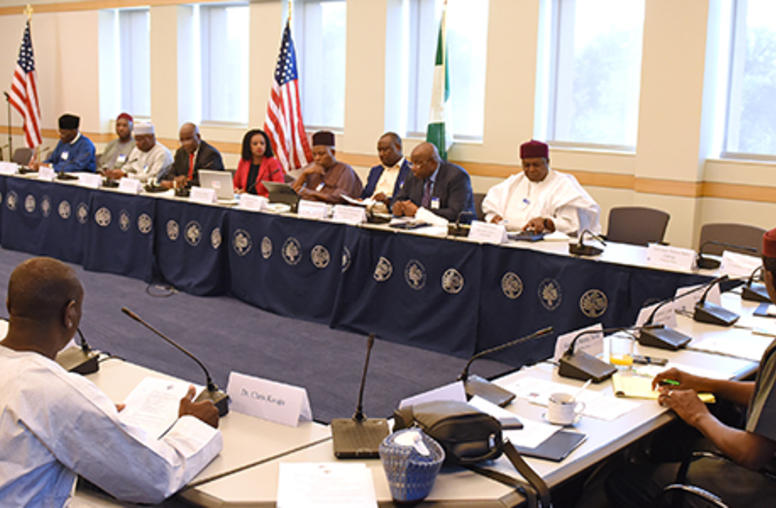
Nigerian Governors on Ways to Halt Crises, Boko Haram
A dozen governors from northern Nigeria say their region’s crises—warfare, poverty and millions of uprooted people—can be ended only with initiatives for education, reconciliation among rival groups, and the political inclusion of minorities and women. As Nigeria works to repair and build relations between police and communities, several governors said, the country’s federally run police system should be complemented with state or local police forces. The elected state governors, who wield im...

Experts Survey U.S.-Pakistan Ties Under President Trump
As the United States prepares for a transition to a President Donald Trump administration, what might be the future of America’s relationship with Pakistan? U.S.-Pakistani relations got little attention in the U.S. presidential election campaign, but four former senior U.S. and Pakistani officials offered what they said were likely scenarios November 16 in a forum at USIP. All four acknowledged past tensions in the relationship. Looking ahead, they cautioned against any deep rupture. “For the...
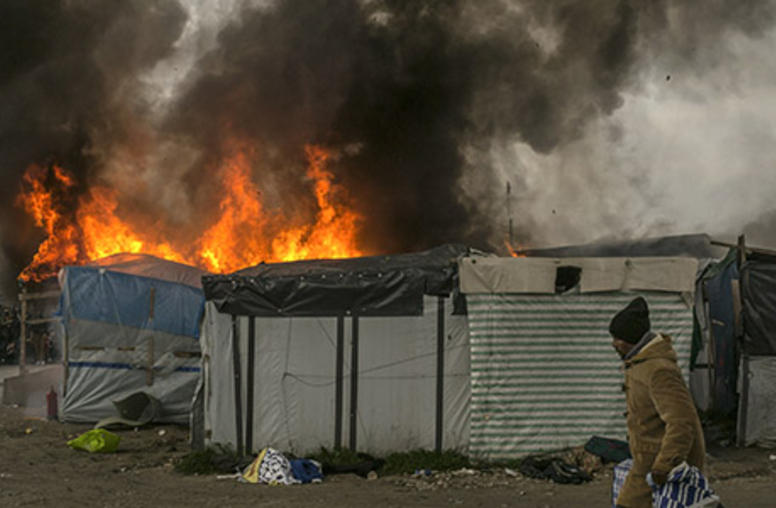
World Bank Seeks Crisis Flexibility for Long-Term Impact
The World Bank Group generally reserves its cheapest loans for the world’s poorest countries. But as protracted conflicts have swelled the number of global refugees, the bank in September unveiled a new, more flexible crisis program that allows, for example, middle-income Jordan and Lebanon, both inundated with uprooted Syrians, to borrow on the bank’s most favorable terms. The shift reflects a growing consensus that traditional distinctions among relief, reconstruction and development work a...
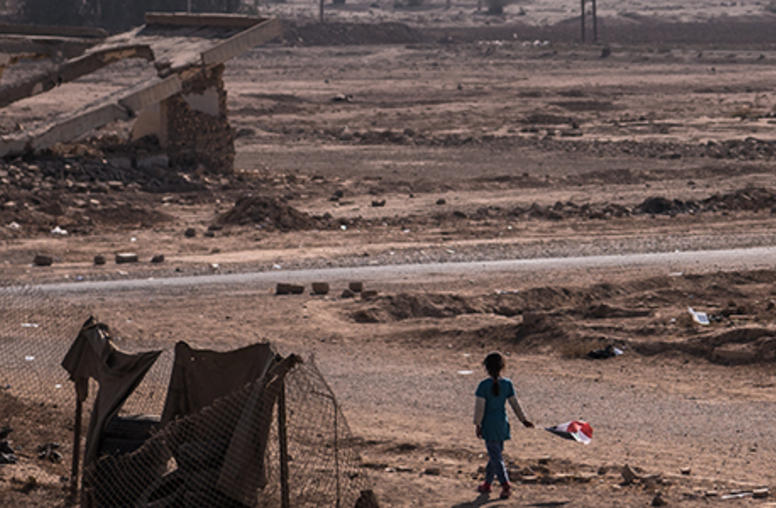
From ISIS to Al-Qaida: The Changing Extremist Threat
The Islamic State may be crumbling across Iraq, but the future prospects of violent extremist groups are far from fading. While ISIS rampaged across Iraq and Syria in 2014, setting up a terror-based regime to impose its will, a revitalized al-Qaida was taking a different, more sustainable approach by grafting itself onto local extremist groups, experts said in a forum at the U.S. Institute of Peace that also examined community approaches to preventing and countering violent extremism. Al-Qaid...
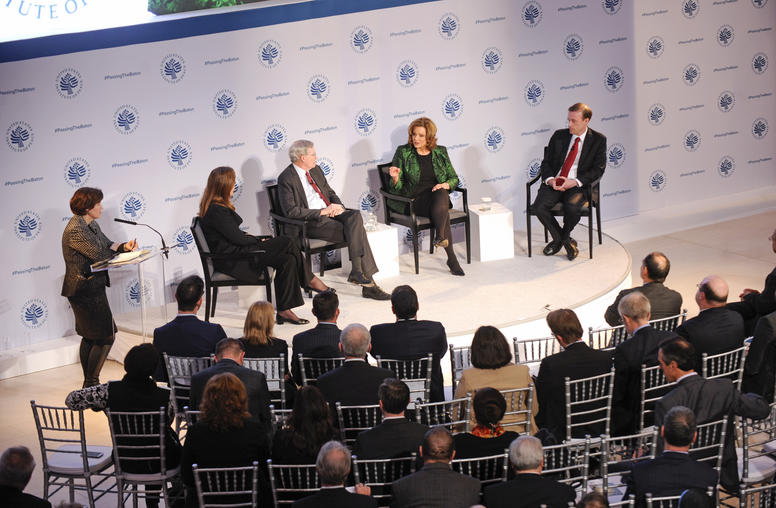
Trump & Obama Aides, Experts Weigh America’s Global Role
Seven weeks past an election that stirred talk of U.S. isolationism, national security aides from the incoming, outgoing and previous administrations held private discussions January 9 that found a broad point of consensus: The United States must lead more, not less, in the world. The meetings, among more than 80 past, present and future officials and independent foreign policy analysts, opened a bi-partisan conference on national security issues convened by the U.S. Institute of Peace (USIP)...
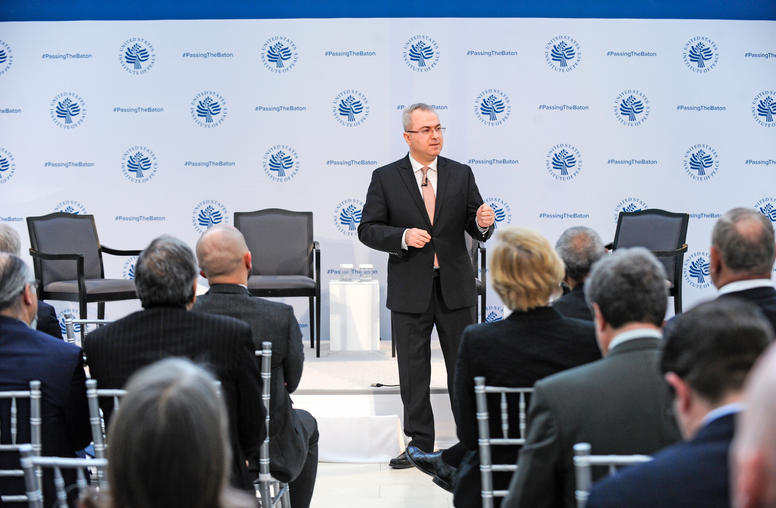
Cooling Iraq’s Conflict With Community Dialogue
The violence of extremists—and the chaos they spawn—takes place in towns, villages, streets and homes, not along some far-off front line. That’s where extremist groups seek recruits and where residents they victimize plot revenge, said the U.S. Institute of Peace’s Sarhang Hamasaeed in a Ted Talk-style presentation during the Jan. 10 “Passing the Baton” conference. While national and international efforts to bring peace to such areas can help, dialogue and mediation at the community level has...
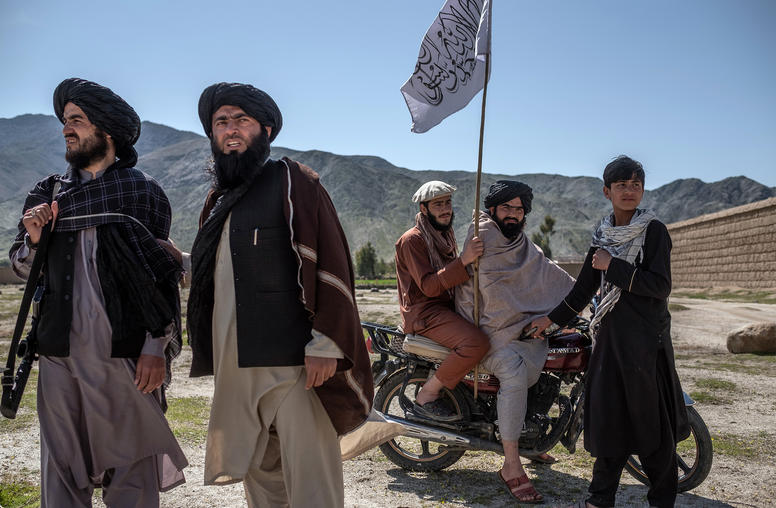
Disengagement and Reconciliation in Conflict-Affected Settings
Even in brutal and desperate conflict settings, it is possible for people to abandon violence and leave violent groups. Peacebuilders know this well—yet terrorism and counterterrorism policies and practices have often neglected practical ways to address participants in violent extremism and failed to provide them opportunities to reject violence. This report examines how peacebuilding tools can help transform the individual attitudes, group relationships, and social ecosystems and structures needed to facilitate the effective disengagement and reconciliation of former members of violent extremist groups.
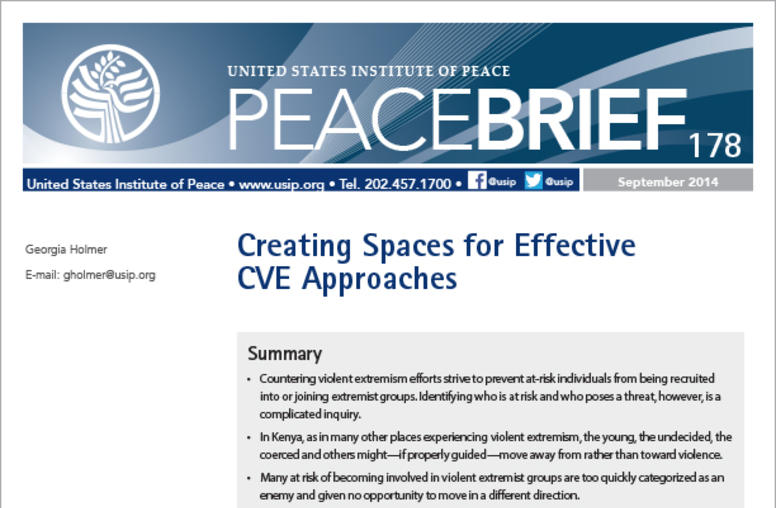
Creating Spaces for Effective CVE Approaches
Unlike other counterterrorism strategies, countering violent extremism (CVE) focuses on preventing individuals from being recruited into or joining violent extremist groups. CVE is a complex endeavor, largely because the reasons individuals become involved in extremist violence are in themselves complex and the dynamics are unique to each conflict. Using Kenya as an example, and drawing on observations from a recent visit, the author explores how promoting a more nuanced understanding of radi...
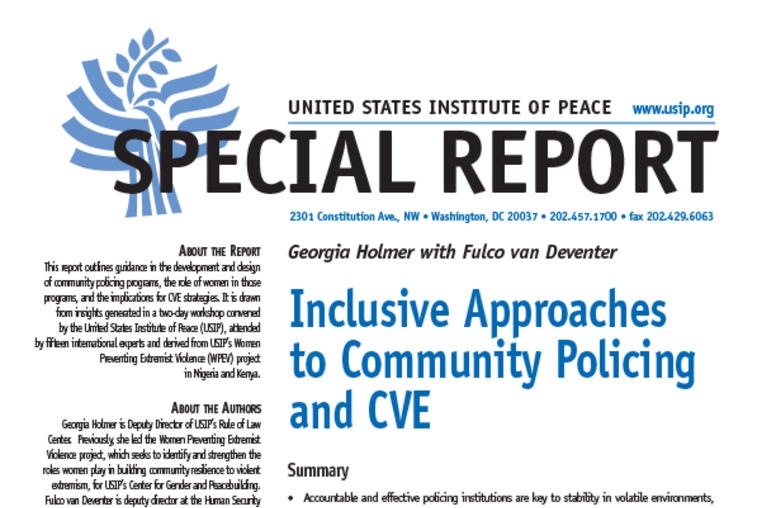
Inclusive Approaches to Community Policing and CVE
What happens when community policing—a strategy that promotes collaboration between the police and a community to ensure safety and security—is implemented in transitional societies, in marginalized communities, or to prevent violent extremism or to engage women in providing community-level security? To ensure that they are not doing more harm than good, security, gender, and peacebuilding practitioners must both expand their understanding of policing methodologies and related assumptions and...